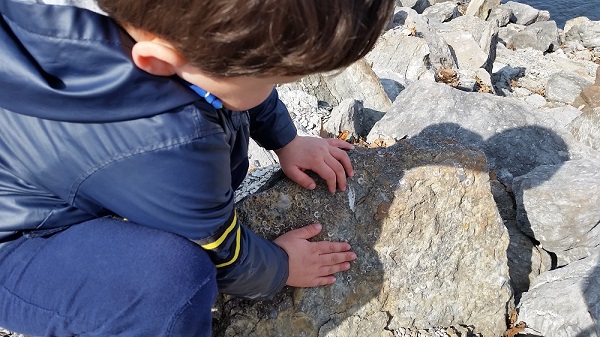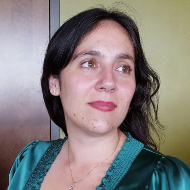Last week I visited two very different schools.

On Monday I hosted a community science night at a rural school in a relatively low income area. The community is so religious that I was asked not to host anything on Wednesday evenings because that’s church night. You might think that the combination of poor and religious would mean that public school education wouldn’t arouse much passion. But you’d be wrong. The school district is just great. The teachers and the community are, in fact, passionate about education, and invested in the economic future of the local area. That means they’re invested in STEM education. They apply for grants; they recently built a new STEM center; they openly host events about evolution and climate change. Lots of excited people show up to these events, ready to learn and have fun.
A great situation, right? Definitely. I love working with these people. We put on an event with them every month. This month was focused on climate change, although it’s worth noting that this district is also committed to quality education on evolution. At one of our exhibits, “The Greenhouse Effect”, I put together a little greenhouse that people could go in and out of to experience how different it feels inside a greenhouse, and we planted seeds while talking about how the greenhouse effect could impact plant life. Although this was in a rural area, most of the people had never been inside a greenhouse, so the phrase “the greenhouse effect” didn’t mean much to them before they participated in our exhibit. And a significant minority, maybe thirty percent of the attendees, had never planted a seed. It was strangely meaningful to be with people while they planted seeds for the first time. People were so concerned about the seeds, like parents with new babies. Both children and adults had a tender, positive learning experience. The adults who had never planted seeds before, or who had never been in a greenhouse, clearly walked away from this simple exhibit with meaningful new experiences that made climate change more real and accessible.
Later in the week, I was asked to come and talk with some fifth grade girls at a local private school. These girls were researching Darwin and wanted to know what kinds of challenges are involved in teaching evolution today. How could I pass up the opportunity to talk with some nerdy girl scientists? Of course I went over there.
Seeing these kids in their class was something out of a futuristic novel. Integrated technology everywhere. Nine year olds asking me if I could describe the flare-ups we deal with at NCSE as a heat map. Kids with big gaps from missing primary teeth telling me they were going to grow up to be analytical chemists. Girls fighting to tell me who could program in the most languages.
These kids wanted to know what other kids learn about evolution. I started with the key stats: about thirteen percent of teachers teach some form of creationism, and maybe sixty percent don’t touch it. That means only 28% of teachers, and thus a bit less than a third of American kids, get a solid education on evolution in science class. The kids I’d worked with this week, both in the rural area and at this nice school in town, were in that thirty or so percent.
Both of these groups of kids are among the lucky ones. They are being taught about evolution—a critically important conceptual framework without which biology collapses into a pile of factoids—and the scientific evidence for humanity’s dramatic impact on the Earth’s climate. These are topics that profoundly shape our understanding of the world and our place in the world. The communities are very different, and their lifestyles are probably pretty different. But with just these two examples, it is clear that there is a lot of variation in schools where teachers openly and supportively teach evolution. It also makes me wonder how much variation there is among the schools where those 60% of teachers equivocate or avoid teaching evolution.
I would like to spend time in the classrooms of those teachers—to discover what factors discourage them and how we could encourage them to tackle this vital material. As you might imagine, I don’t get invited into those classrooms very often!
Nevertheless, I'm learning about how community attitudes toward science affect teaching practices, A community doesn’t need to be rich, urban, or liberal to support science education, even when potentially controversial topics are involved. That gives me a lot of hope.

